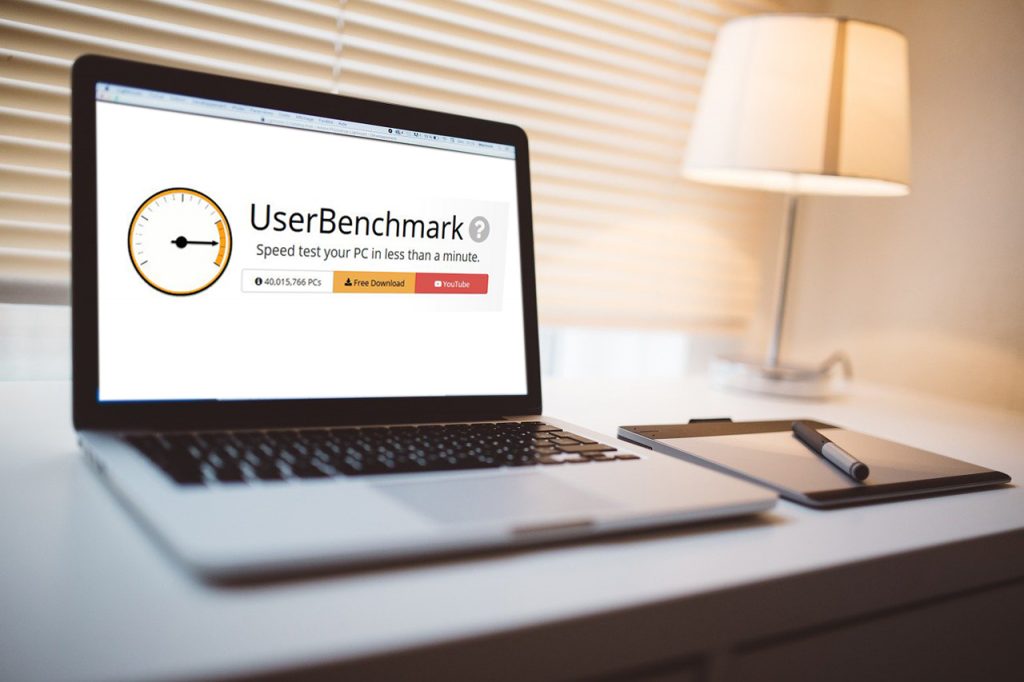For many casual PC users (especially those who fancy themselves tech gurus), UserBenchmark has been crucial in helping them figure out whether or not their rig can handle a certain amount of work, and for good reason: UserBenchmark is very easy-to-use, little-to-no-training required, and displays the information it gathers from your PC (a standalone system that is one-time usage with no installation required) in an organized and easy-to-understand fashion.
There’s just one problem: UserBenchmark is wildly inaccurate.
Why Experts Shun UserBenchmark
UserBenchmark has become one of the most controversial websites over the past couple of years after hundreds –if not thousands –of tech experts found various inconsistencies, inaccuracies, and biases in their system. What was once one of the most treasured tech developments to go public is now universally condemned and looked down upon by the tech community.
One of the most glaring inaccuracies in UserBenchmark’s system is its favoring of single-core and quad-core processors, with octa-core processors being given negative assessments despite the fact that the latter objectively pumps out more power and speed. It took the Ryzen 5’s launch –which many users used as a new benchmark of sorts –to figure out the inaccuracies presented in UserBenchmark’s results.

But despite the almost-universal condemnation of UserBenchmark, a quick Google search of anything related to PC benchmark tests will almost-always yield the site as a top result. This is because the UserBenchmark team relies heavily on SEO manipulation of certain keywords to put themselves at the top, whether it’s CPU reviews or GPU performance tests, UserBenchmark tries its best to corner those keywords so that search engine users see their site first. This is, of course, despite their claims in their “About” page, a claim widely contested by thousands of users who accuse the website of hating AMD.
Of course, SEO is a viable marketing strategy that pretty much any site worth its salt uses, but for many tech experts, UserBenchmark is leveraging SEO to further spread their wholly inaccurate and biased findings which, for many, is dangerous for the average user.
UserBenchmark: Biased Towards Intel and NVIDIA
Perhaps one of the most glaring examples of UserBenchmark’s bias is the lack of any AMD products on its website. UserBenchmark will have us believe that this is not due to any curation on their end, but rather, a reflection of user input.
However, consider this: UserBenchmark mentions the NVIDIA GeForce GTX 1660 Super in their GPU section as faster than the Radeon RX 5600 XT. However, a quick glance at the specs of each GPU –not to mention user reviews in pretty much every other website –will show that Radeon’s GPU is actually 30% faster than NVIDIA. In fact, the Radeon RX 5700XT, which coincidentally ranks dismally in UserBenchmark, is around 10% better (according to, again, pretty much every website that isn’t UserBenchmark) than the GeForce RTX 2060 Super (which, coincidentally, is universally condemned by every other website that isn’t UserBenchmark).
UserBenchmark: Banned from Trusted Subreddits
Due to growing criticism and widespread mistrust, citing UserBenchmark on various subreddits has pretty much been banned, with reputable threads r/Intel and r/Hardware even going so far as to ban any UserBenchmark user from posting or commenting on their subreddit, mostly because many self-proclaimed UserBenchmark users were either acting like trolls or were completely biased towards UserBenchmark’s inaccurate results.

But despite Reddit bringing down the banhammer, UserBenchmark actually doubled-down on their user’s behavior, with their blog and About page calling anyone who criticizes them as “paid for by billion-dollar companies”, “an army of shills”, and so on and so forth.
r/Hardware was the first subreddit to ban the UserBenchmark team, with the mods garnering a whopping 97% of subreddit users to approve their decision to ban UserBenchmark. Of course, UserBenchmark called this a “smear campaign”
So Should We Stop Using UserBenchmark?
Yes, and here’s why:
UserBenchmark focuses its system to test PCs primarily for gaming, with results being skewed in favor of the latest, most expensive hardware available. This isn’t in and of itself horrible; after all, some of the most powerful CPUs and GPUs out there do cost an arm and a leg. However, that doesn’t mean that less expensive CPUs and GPUs can’t deliver something comparable to their high-end counterparts.
In fact, we’ve shown before how you can build a gaming PC under $1000, and this will give you specs that will allow you to play triple-A titles in medium settings (high if you overclock, although we’re not officially endorsing that *wink*).

What does this imply? Well, frankly, the implication is that UserBenchmark gets paid to push more expensive products in order to get higher commissions. It’s an over-simplification to be sure, but it is something they are regularly accused of by various tech journalists. Of course, the UserBenchmark team whole-heartedly denies this, and while we’re not passing judgment per se, it is suspicious.
Speaking of suspicious, perhaps one of the most sus things about the site is that no one knows for sure who the UserBenchmark team is. On their site, they simply say that they are “an independent team of scientists and engineers”. Granted, we believe that everyone is entitled to anonymity, especially on the internet, but it does call into suspicion many of their results, especially after various tech experts have debunked their algorithms as favoring one brand over the other and rumors of the team being sponsored by Intel.
Is UserBenchmark a target of a smear campaign? It honestly doesn’t seem like it. Sure, it looks like it, given the amount of negative press they’ve received over the past couple of years, but while it might be tempting to believe that they’re at a center of a billion-dollar conspiracy that is threatening to silence them for speaking the truth, the simplest reason might just be the realest one: UserBenchmark is sponsored by a tech company and they’re tasked with convincing people to buy products on the sly.
You can test out the GPUs we mentioned on your own, but fair warning: it’s going to cost you.





